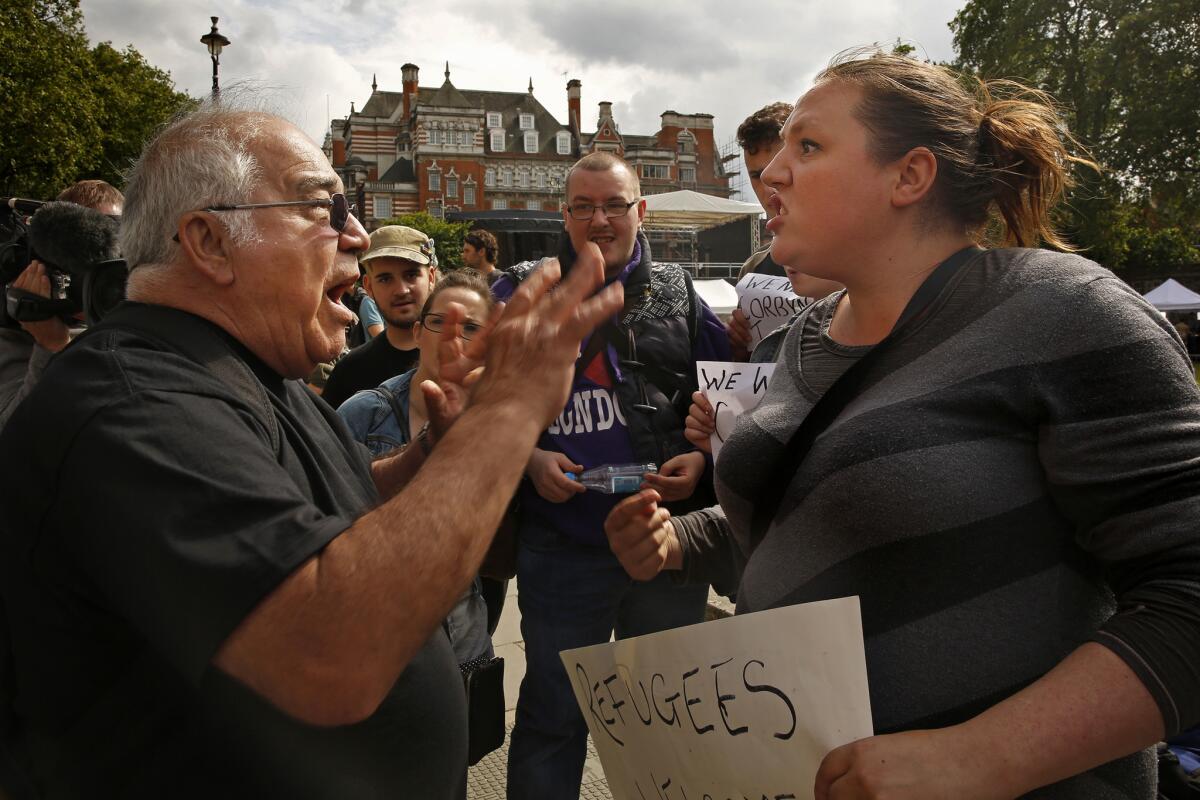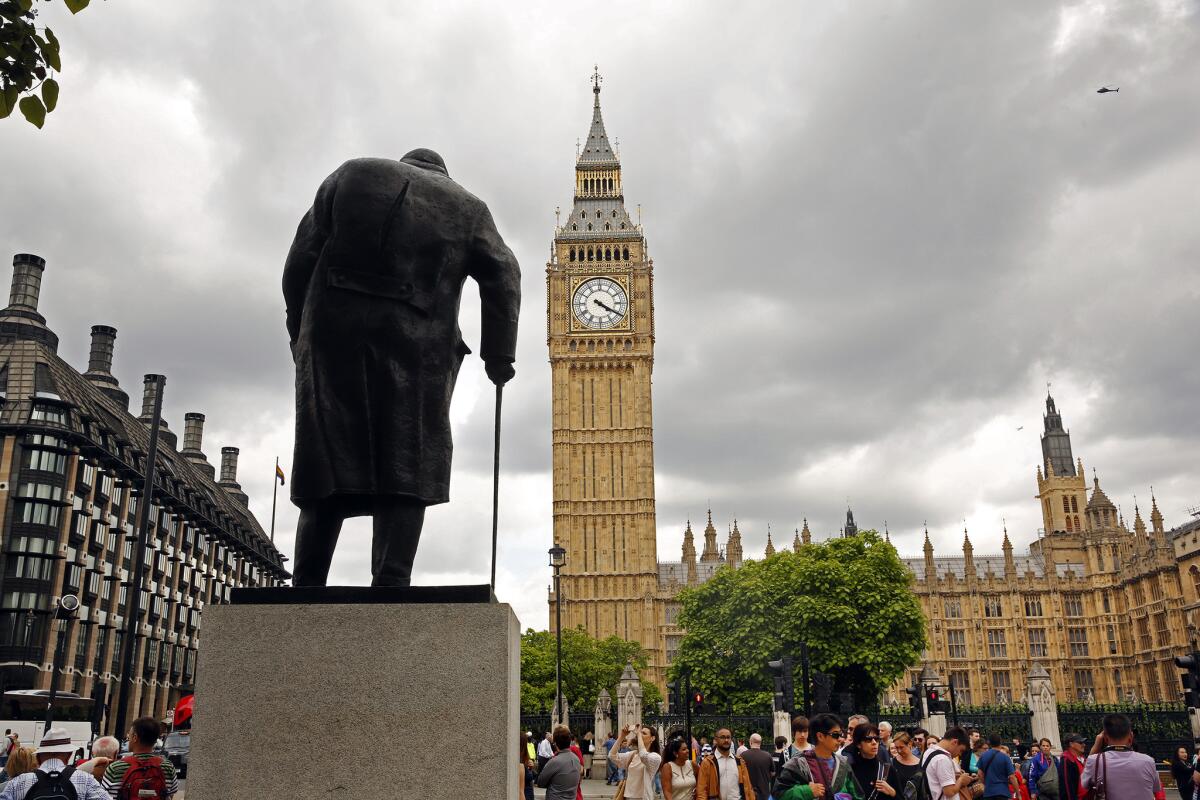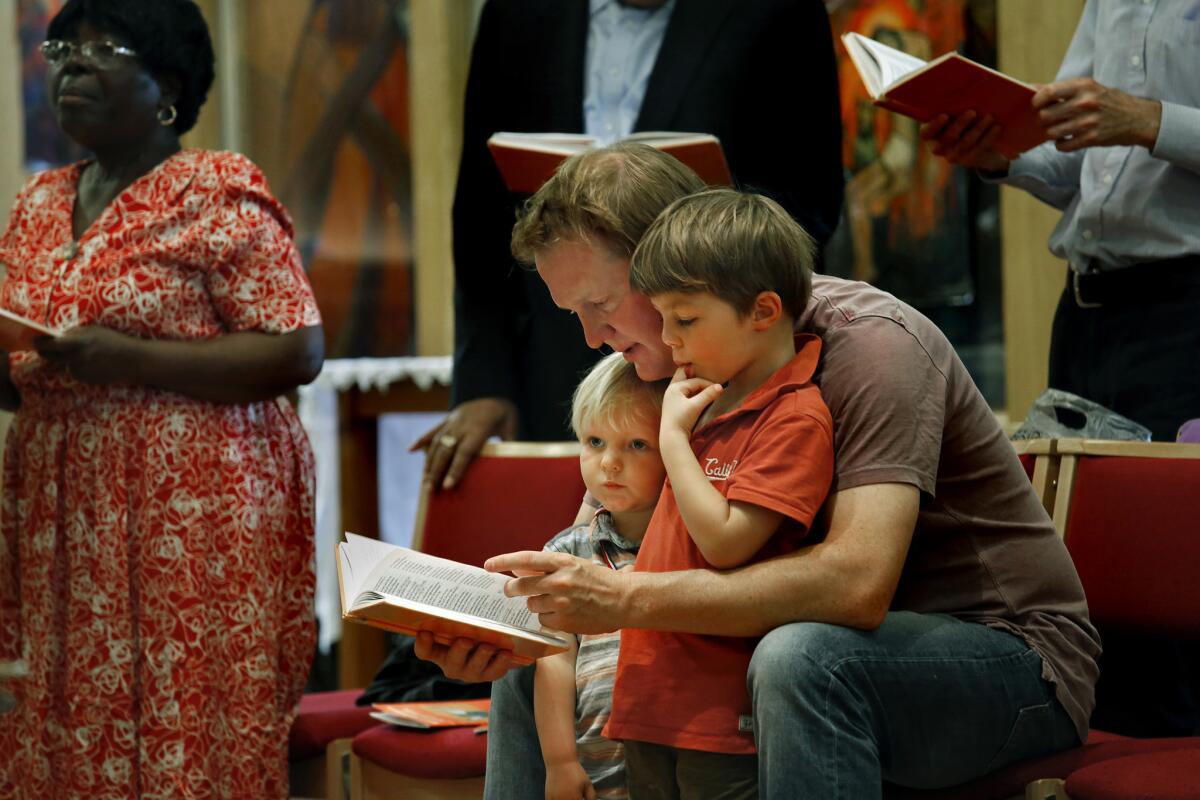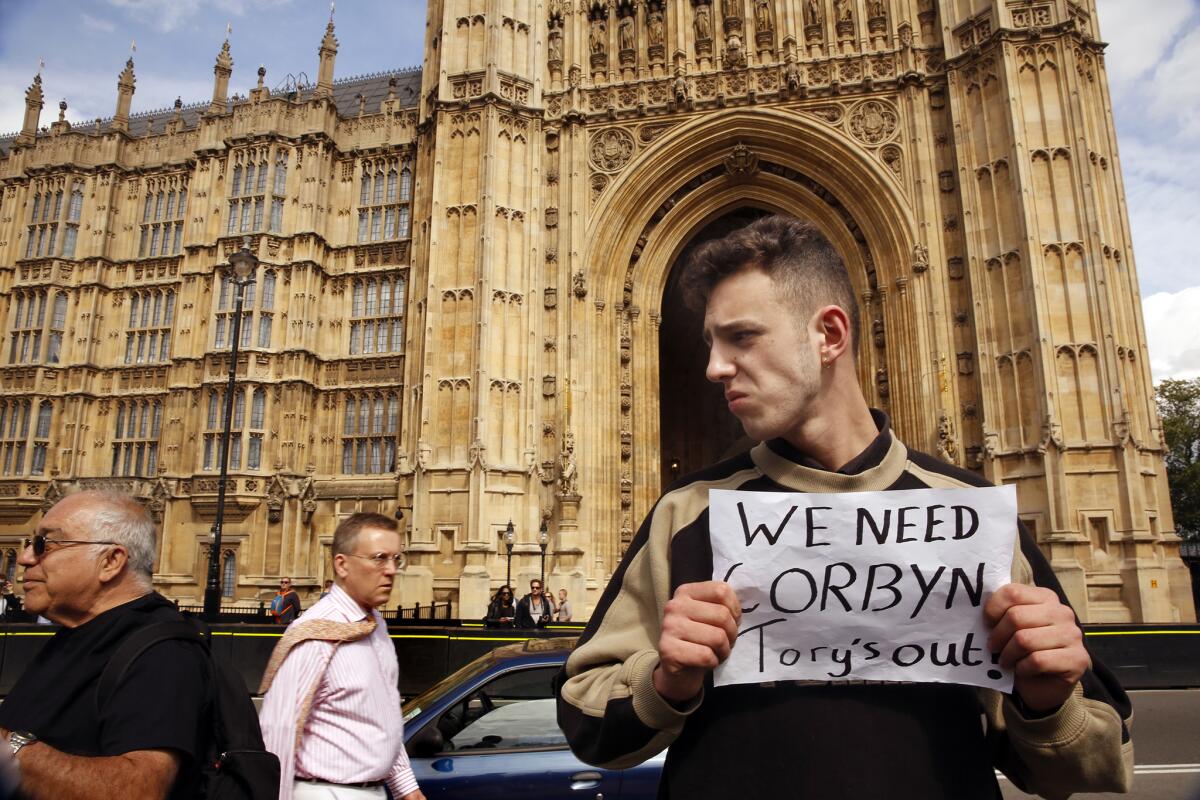Confusion and division reign as British ponder reality of EU exit

At the Speaker’s Corner of Hyde Park, where generations of Londoners have come to hear harangues on almost any topic imaginable, a small crowd gathered Sunday during a brief, sunny respite from an overcast and rainy week.
A Muslim preacher held forth, perched on a green folding chair, but his words were only background to the debate taking place in the crowd. There the topic was Britain’s vote Thursday to leave the European movement and the vote’s effect on Britain’s residents, its economy, and its political leadership. The vote put the future of all three in doubt.
Across London on Sunday—indeed, across the entire country, from church pulpits to the offices of government ministers--confusion reigned about what Thursday’s vote says about the nation and what it means in practical terms.
“I got fairly depressed with the results,” said James Cully, a former magazine writer and lifelong follower of the Labor Party. “The referendum on staying or leaving wasn’t just about economics—the big change was cultural.” The pro-”Brexit” campaign melded voters’ fears about their economic status with a vision of Britain overrun by immigrants, he explained.
Until now, he added, Britain was not a “referendum democracy” but reserved momentous decisions to elected members of Parliament. “Now everything’s up in the air.”

A few steps away, Terence Dyer, an artist, showed how the issues were inextricable for many voters. “I’m not against good, white, God-fearing people from Eastern Europe,” said Dyer, who is black. “But I voted Leave because now I’ll stand a better chance of getting a job.”
Both major parties in Britain emerged from the vote in disarray. An internal challenge has developed to Jeremy Corbyn’s leadership of the opposition Labor Party, while a vacuum prevails in Conservative Party leadership, following Prime Minister David Cameron’s resignation in the aftermath of the referendum.
Both Corbyn and Cameron supported Britain staying in the EU, and both are paying a political price for their handling of the issue.
Minorities and younger Britons wondered if the “Leave” voters, who tended to be older and working-class, wanted to exclude them from Britain’s future.

“There is a deep sense of shock, anger, and foreboding for many about how events will unfold in the coming weeks and months,” the Rev. Dr. Stephen Sichel, vicar of St. Matthews Church in Brixton, a multicultural section of southwest London, said in his Sunday sermon. “Minorities of all stripes, the undocumented, and anyone who feels that in some way they don’t fit in must all feel a sense of disorientation…. It cannot comfort us to know in a plural community such as our own that some of us who rejoice most passionately over this decision are also those who find human differences, the other, the alien and the stranger in the land as the cause of our woes rather than as our neighbors.”
Sichel’s parish may have had good reason to feel itself on the outside looking in: Its county, Lambeth, delivered the biggest majority for remaining in the EU, 78.6%, of any community except Gibraltar, where 95.9% of voters opted for Remain.
“We all feel saddened that we appear to have taken a retrogressive step. We have to move forward,” said Tom Catchpole, 34, who came to St. Matthews with his two young sons.
Also feeling disrespected is Scotland, which along with Northern Ireland voted heavily in favor of staying. The head of Scotland’s government, First Minister Nicola Sturgeon, said Sunday that under the legislation governing Scotland’s position within the United Kingdom, the Scottish Parliament effectively has a legislative veto over Britain’s formal withdrawal from the EU. Sturgeon did say, however, “I suspect the U.K. government will have a very different view on that.”
Thursday’s vote was not binding on the British Parliament, but that body is expected to accept it as a mandate.
The very process of Britain’s withdrawal from the EU is nebulous under European Union rules. And as the leadership of both major parties emerged from the Brexit campaign in disarray, it was unclear who would emerge as the leader who will have to manage the process as well as the economy as it enters a period of deep uncertainty.
All that’s known is that it won’t be Cameron, who staged the referendum in confidence that Britain would vote to “Remain” in the EU. Cameron announced his resignation the day after the balloting. But Cameron said that he would stay for as long as another 3½ months, or until this year’s Conservative Party conference, which starts Oct. 2.
The more immediate crisis confronts Corbyn at Labor. Early Sunday he fired his shadow foreign minister, Hilary Benn, after Benn told him he had lost confidence in Corbyn’s leadership. “He’s a good and decent man,” Benn said on the BBC, “but he’s not a leader.” Eleven other members of Corbyn’s shadow cabinet then resigned.

The 30 shadow cabinet members correspond to government ministers and serve as official opposition spokespersons in their fields.
The resignations, which the Guardian newspaper described as a “coup,” reflect discontent with Corbyn’s indifferent role in the Remain campaign, which the party supported. “Corbyn made only a smattering of campaign appearances, and they were lackluster in delivery and critical of the EU in tone, resulting in Labor voters not knowing the party’s position,” complained Phil Wilson, a member of Parliament who chaired the party’s Remain group. He called on Corbyn to resign, but Corbyn’s supporters said he does not intend to do so.
A leadership fight may also develop within Conservative ranks. Boris Johnson, a former mayor of London who became a leader in the Brexit movement, is considered to be Cameron’s most likely successor. But he is expected to face challenges from other Conservative members of Parliament.
Times photographer Carolyn Cole contributed to this report.
UPDATES:
2:43 p.m.: Updates with quote from Brixton parishoner.
1:36 p.m.: The article was updated throughout with staff reporting.
This article was originally posted at 8:41 a.m.
More to Read
Start your day right
Sign up for Essential California for news, features and recommendations from the L.A. Times and beyond in your inbox six days a week.
You may occasionally receive promotional content from the Los Angeles Times.







